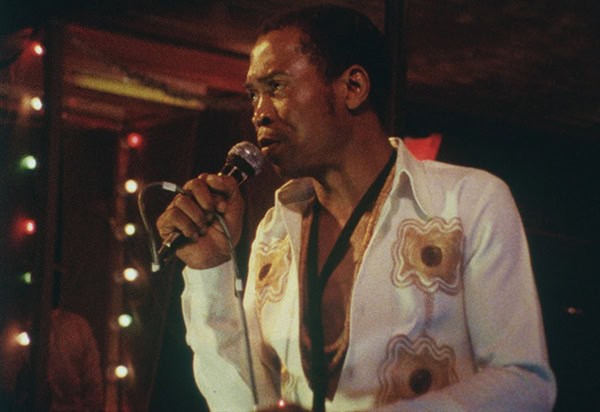“Finding Fela” is a documentary focused on the Fela Anikulapo Kuti; a Nigerian musician and human rights activist who stood for social justice and equality.
In “Finding Fela,” we see behind the scenes footage from Fela’s private living, concerts, and the Broadway play “Fela!” named after the late musician. We also see the people who were closest to him like his children, drummer and manager discuss their one on one moments with the performer which gives the viewers an inside look on what was really going on behind the music and the household name. “Finding Fela” has a running time of almost two hours and the documentary starts off with an introduction of who Fela was as an artist. He is portrayed as a bold and colorful man who campaigned against suppression and despotism considering it’s not so glamorous consequences. This introduction is accompanied with Fela’s music, which drew me into the film because it was very rhythmic, infectious and irresistible.
Getting into the documentary, Fela’s upbringing is explored. We learn fun facts about him like his mother engaging him with the piano at the age of nine. He came from an upper middle class family, as his parents were very well respected people in the Nigerian society. We also find out that he was the leader of his school choir and started out playing religious Christian music, so his passion for music did not just come from nowhere. The documentary then goes directly into fifty percent of the focal point of the movie, which is his influence on highlife/soul music in West Africa. Bob Marley and The Antibalas, which was a popular band in Brooklyn, New York may have been inspirations for Fela’s movement.
Fela was known for his jazzed up horn arrangements which became a signature piece in his music. The film also cites James Brown as an influence on Fela’s music. The Nigerian culture is emphasized with scenery of the country’s lifestyle during that era. We see women carrying babies on their backs, tall buildings and a lot of cars. The highlight of that segment for me was be the nightlife.
The film eventually gets less humorous and becomes graver and pensive as issues like racism, war, feminism, corruption and constitutional rights are discussed. Sandra Daniel provides personal information about meeting Fela Kuti, their marriage and her culture shock given that she met Fela in L.A. and had no idea she was being married as a third wife. However, it was not her personal experiences that added the needed drama element to the film; it was Fela’s attack on the Nigerian government. Fela spoke up against police brutality and for freedom of speech, human rights and fair practice. That did not fare well with the Nigerian military force at that time as the documentary depicts them as immoral, wrongful and detestable. Because of this, Fela and his supporters were often beaten down and maltreated.
“Finding Fela” gives us enough information about Fela to conclude what kind of life he lived and what legacy he left behind. It is not your typical sob story or infomercial. Although some might see Fela as a crazy, mad and an imperfect man, we can’t deny that all of those qualities make him a genius musical mind and brave hero. I view this documentary as a very truthful and daring project. The unfiltered surface in which the content is presented is absolutely astounding.
“Finding Fela” hits theaters this Friday, August 1.
